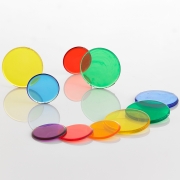How Do Sensory Toys Help Autism?
The benefits of sensory toys for children with autism
Autism is a disorder that is characterised by difficulties in social interaction, verbal and nonverbal communication, as well as repetitive or restricted behaviours. Children and adults with autism can have sensory processing issues, which may make other people feel that they are not present, or in the moment.
Sensory toys help children on the spectrum because they can help them focus and pay attention, plus they can also help relieve some of their stress and anxiety making them relax, focus and calm. Sensory toys are gaining attention as many parents and therapists are reporting positive results – while these toys have been around for a while, they have never been so popular.
What are sensory toys?
Sensory toys are objects that are used for tactile stimulation. They offer a tangible way for kids to interact with their environment, which helps them learn about the world around them. Sensory toys are made for children with special needs, but they work great for all kids.
Under the umbrella of sensory toys are proprioceptive toys, which are designed to help children strengthen their muscles and bones, as well as develop good posture, balance, and coordination by engaging their bodies in play. Our whizzy dizzy is fun and works on the vestibular and proprioceptive senses making it a beneficial sensory toy for children with autism.
Some sensory toys for kids have smooth or soft surfaces which will promote calm and eliminate anxiety. Avoid fidget spinners which can be visually distracting and overstimulating.
Why do children with autism need sensory toys?
Children with autism spectrum disorders face an array of challenges, which include difficulty communicating, interacting and learning. Sensory integration is one of the most important skills for those with autism to learn because it helps them to better understand their environment and become more aware of their emotions. Sensory toys help autism by:
- Reducing stress levels
- Improving self-awareness
- Refining gross motor skills and fine motor skills
- Learning cause and effect
- Improving communication skills
- Developing social skill
- Increasing self-confidence
Fidget toys are often recommended by occupational therapists, especially stress balls, because they provide the right amount of sensory input.
Sensory toys generally stimulate the five senses, providing sensory input, which is necessary for the brain to process information. In our article The benefits of messy play for autism, we fully explore the five senses that are targeted through sensory toys.
What are good sensory toys?
Vibrating toys, pillows and blankets provide tactile stimulation and can allow their user to experiment with the feedback that the item has against their body. They can also be extremely helpful with sleep routines due to the pressure from the vibration and the weight of the blanket. Weighted blankets are also good for children who tend to be light sleepers.
Children who have a sensory processing disorder often seek oral stimulation especially when they are overstimulated. Sensory chew toys are hand-held objects that are made with safe materials, such as non-toxic fabric or silicone. They provide sensory stimulation for children with autism and they come in a wide range of textures; some are smooth while others have ridges and raised patterns.
Please note that due to some sensory toys containing small parts, not all are suitable for children ages 3 and under.
Some of the best sensory toys are already in your home. Bubbles are great for children with autism and sensory issues because they are soothing. Water play is also great for kids with sensory issues; if you have a bathtub, you don’t even need to buy any toys. Just fill your tub with warm water and a few drops of dish soap, and let the bubble fun begin! Water is a great sensory activity and stress reliever.
If you don’t have a bathtub, you can still enjoy water play with a water table, use our Fun2 Play Activity Tray or our Circular Sand and Water Tray. Playing with water is great to work on a child with autism’s motor skills and hand-eye coordination. Throw in some of our Translucent Counters or Aquatic Counters for added fun!
You can make homemade play dough, which can be used as a fun and relaxing activity. Or, you can make some homemade sensory bottles and grab a few of your child’s favourite things, such as beads, rocks, and even objects from nature, such as leaves and tree branches, and place them in the bottle.
Remember that sensory activities will have positive benefits for children in your care, not just those diagnosed with (or displaying indications of) autism.
Our Edx Education UK fidget toy pack of 100 Fidget Cubes or Edx Education USA fidget toy pack of 100 Fidget Cubes are ideal for children with autism. A pack includes 10 colours and 5 different shapes; circle, square, triangle, hexagon and pentagon. These sensory fidget cubes link together and connect with a satisfying ‘click’ as you feel them ‘snap’ together. You can build them up, over, down or out so you can create endless 2D and 3D shapes, matching the shapes and creating patterns. For more information read our article on How do fidget toys help autism?
For home learning toys for different age groups, developmental stages and abilities, view our full range here:
https://www.shopedx.co.uk or www.amazon.com/edxeducation
Edx Education – Heather Welch
To find your local Edx Education retailer head over to Where to buy – Edx Education.



